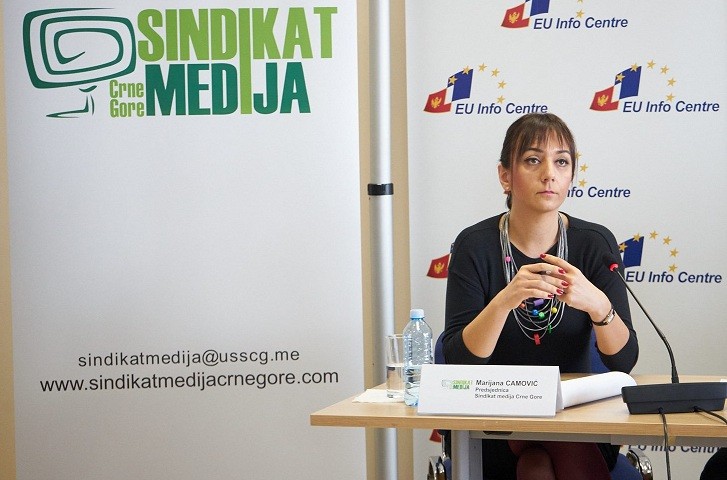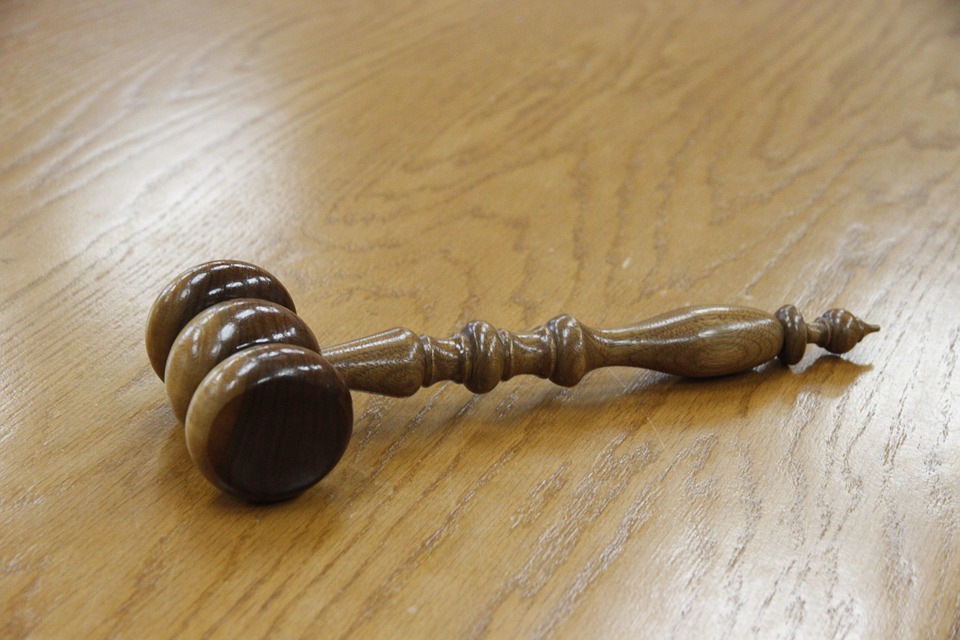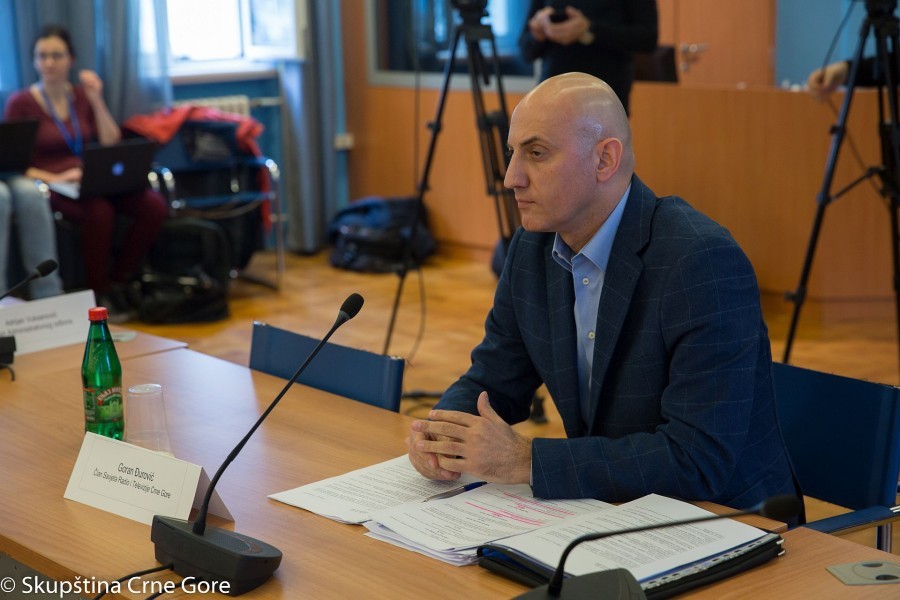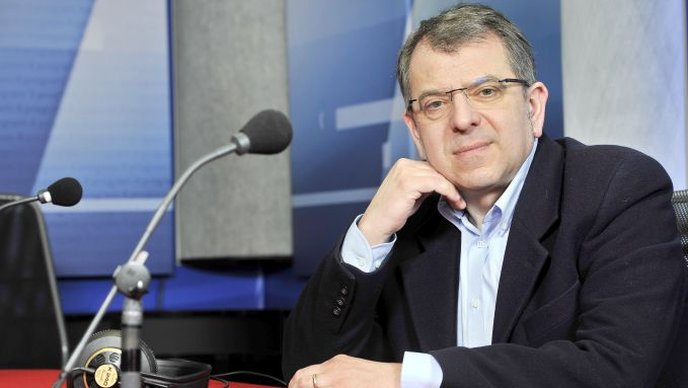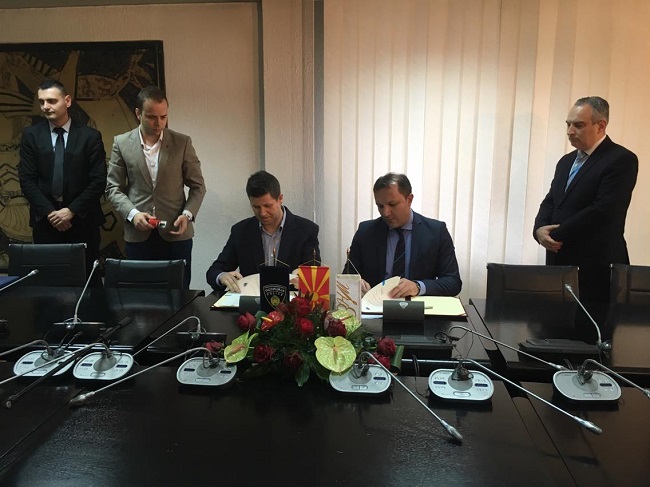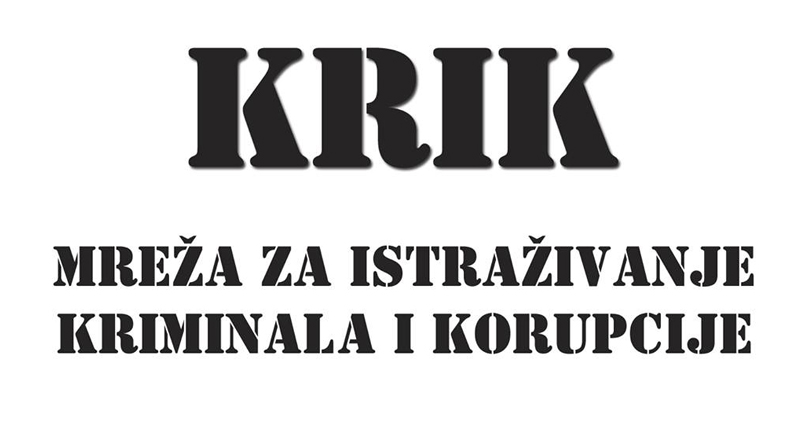PODGORICA, 04.01.2018 – The state should be more determined in finding a mechanism for resolving cases of attacks on journalists and preventing further attacks, stated Marijana Camović, President of the Trade Union of Media of Montenegro.
She believes also that media in Montenegro should show more solidarity with their colleagues who are victims of attacks, and who are not part of their newsrooms.
In an interview for RTCG portal, Camović said that, compared to 2016, when there weren’t any severe attacks on media and journalists, situation in 2017 was considerably worse.
The introduction of the autonomy in the work of journalists, which is one of the proposals of the Trade Union of Media of Montenegro, according to Camović, mean that journalists’ work would be in their hands.
“We noticed this problem during the research that we have been conducting for two years now. Our colleagues have openly talked about their working conditions. Based on the research findings we submitted to the Ministry of Culture concrete proposals for amendments to the Law on Media, according to which journalists would be given the right to reject specific editorial requests if such would violate regulations, rule of the profession, or Ethical Code”, said Camović.
Also, as she explained, media text or contribution, to which the meaning was changed during the editorial process, should not be published under the signature of a journalist-author, without his/her consent.
How would you rate 2017 regarding media freedom and position of journalists in Montenegro? Has any progress been made in comparison to previous years?
“Compared to 2016, when there were no severe attacks on media and journalists, 2017 was considerably worse, especially its second part. In September, Prime Minister’s brother threatened by phone to our colleague Vladimir Otašević. Few days ago we received a notification from the Basic State Prosecutor’s Office in Bijelo Polje that the case had been transferred to the Basic State Prosecutor’s Office in Podgorica, but we were told that Velizar Marković was charged with the criminal act of endangering safety. For this criminal offense, a fine or imprisonment of up to one year is foreseen. We will continue to follow this case. The second severe case, but which for some reason did not awaken the interest of media, is the case of burning of a car of our colleague from Pljevlja Miroslav Drobnjak, a correspondent of Večernje novosti. On October 11, his car was set on fire and for more than a month nobody had done anything regarding that, until an expert’s analysis was delivered. The analysis came to an indisputable conclusion that someone sprinkled a car with a gasoline and set it in fire. After that, Drobnjak was questioned in the police station for about ten times. He was even put on polygraph testing. Because of the police treatment we asked for the opinion the Council for Civilian Control of Police Operations. We have appended this request several times, since after each Council’s letter to Pljevlja police, Drobnjak was questioned. Even his family.
In the meantime, nothing was done to find a person who set his car on fire. We were informed by the Basic State Prosecutor Office in Pljevlja that in question is the criminal act of destruction and damage of a property belonging to another person ( Article 251 of the Criminal Code), which is prosecuted based on a private lawsuit, which is very symptomatic. The prosecution and the police – except questioning Drobnjak as if he was a suspect, not a victim – did nothing. Even the criminal act is qualified in the way that it does not concern the prosecution anymore. The Ombudsman has been informed as well and we are waiting for his opinion. During 2017, none of the old cases of attacks on journalists was solved or there were any progress in the investigations.
Situation regarding media, especially electronic, was better. In March, the Government approved aid in the total amount of EUR 1.84 million, at the request of the Radio-Diffusion Center. Since all media received aid, no one pointed out to the fact that it was completely illegal and that it violated the State Aid Law, which stipulates this type of aid once in ten years, and media were media were assisted in a similar way a few years ago. Silence of media did not make this decision lawful, but it has pointed out to many things”.
What are the expectations and plans of the Trade Union of Media of Montenegro for the next year?
“We will certainly continue negotiations on the new branch collective agreement, because this is the most important document that directly affects all media employees, and we approached to these activities seriously. One of the colleagues from the Trade Union of RTCG Employees, which recently has become part of SMCG, will join the negotiating team. Both unions have high expectations, and I believe that the Trade Union of Media of Montenegro will experience changes which will be a positive consequences of the arrival of new people and ideas. Our activities in 2017 will begin very soon, as of January 23, when we will celebrate the Day of Journalists of Montenegro for the fifth year in a row.
Recently, through the analysis of the Law on Electronic Media and Media Law, we provided specific proposals for amendments to these laws and we will certainly do everything in our power to make these proposals an integral part of the laws. The experience we have and knowledge on the functioning of all Montenegrin media has helped us to formulate proposals and I believe that we have good arguments for changes that we advocate for.
We expect from the state to start to consider our profession more seriously and to stop with the obvious practice of qualifying cases of attack on journalists as misdemeanors or offenses which are not ex officio processed. We consider this as a way to “cover” the inability to resolve cases of attacks on the media and journalists and to make the list of such cases shorter. Such relation toward journalism discourages journalists to report attacks, and encourages attackers to continue with such behavior because it obviously is not punishable”.
You recently presented the analysis on the situation in local public emitters in Montenegro, with the recommendation that they should be financed according to the model applied to the National Public Service. Do you expect this to happen in practice? Do you have information on whether there is a willingness in local governments to support this model of financing?
“It is clear that the current manner of financing of does not provide any security or benefits to these media. If a municipality estimates that it is necessary to establish a local public emitter, then it has to ensure its financing, but in a manner which provides as much independence as possible. We advocate for a situation in which minimum funds for the realization of a local public emitter’s mission is known in advance. This is the only way which would ensure high levels of their independence and respect of professional standards. Now we have a situation in which amount of funds proposed by a municipality, according to its own estimation, is being negotiated about. Thus these media, which already have high debts, have no financial security and the problem is not solved, although the Law on Electronic Media has been amended in the middle of 2016. RTCG now knows the amount of funds available and can be more relaxed in that sense. No one thought about local media.
What is problematic is that the attitude of local governments, dictated by politics. Nothing is resolved at the level of standards, because if they existed it would be irrelevant which political party is in power. However, currently the appointment of directors and councils members depends on politicians who appoint “their people”. Later their (most often) incompetence transforms into media dysfunctioning, failure to pay salaries, contributions, and similar”.
One of the proposals concerns introduction of a greater autonomy for journalists? What exactly does this mean, and do you believe that editors and the media owners will be in favor of this proposal?
“I do not believe that editors in chief and media owners would be in favor of the proposal which is striving to take power out of their hands and reduce their impact, but I believe that this needs to happen if we want this profession to survive and regain reputation. Now we have journalists who no longer have to be censored and who do not have to wait to be warned, they know how far they can go and it is appalling.
To sum up, the introduction of autonomy means that journalists’ work would be in their hands. We noticed this problem during the research that we have been conducting for two years now. Our colleagues have openly talked about their working conditions. Based on the research findings we submitted to the Ministry of Culture concrete proposals for amendments to the Law on Media, according to which journalists would be given the right to reject specific editorial requests if such would violate regulations, rule of the profession, or Ethical Code.
Also media text or contribution, to which the meaning was changed during the editorial process, should not be published under the signature of a journalist-author, without his/her consent. In the case of a lawsuit filed against a journalist for articles, contributions, photographs or caricatures, author’s employer would be obliged to hire a legal representative at his/her own expense, as well as to compensate for costs in the event of a loss of a court process. Thus we would protect individuals, their dignity and the profession as a whole”.
What are the major problems Montenegrin journalists face with?
“In their everyday work journalists face problems regarding their professional status in newsrooms. Large number of them are overburdened, especially due to persistent demands form a journalist to cover several areas and performing tasks which are not part of their job description. Journalists do not speak openly about the pressures they face with in their everyday work, but those who are willing to speak point out that every newsroom has a ‘list of desirable’ interlocutors, and that journalists face self-censorship in terms that they are aware of topics that can be covered depending on a media editorial policy.
Imposed interlocutors and topics limit journalists in their work, and surveyed journalists (survey was conducted for the purposes of SMCG research) explain that “self-censorship exists when you have to choose a topic within the frameworks of the media where you work or – just do not “rock the boat” and you will not have major problems-. Even 43.8% of surveyed journalists indicate that editorial policy affects them extremely or to a great deal, and 34.4% said that it partially affects their work. They said that the topics are imposed by media editorial policy media and by the preferences of the editorial board. The survey once again confirmed that journalists endure different influences imposed by individuals. The closer these individuals are to a journalist, greater is their impact on a journalist’s reporting”.
The recent research has shown that almost every third journalist is forced to find an additional job. What does this tell us about our profession and does the economic situation of journalists differ from the situation in education, health care…?
“Those data speak about the degradation of the profession. This year, 31.3% of respondents said that have other, extra job that is not related to journalism. Last year that percentage was 18. If we know that, an average journalist earns less than an average state employee that journalists represent a group of media employees who have higher salaries comparing to their colleagues working in technical or printing units, administration than it is clear why they are forced to work two or more jobs. Late salary payments, non-payment of contributions, work in “grey zone”, overtime work and work during holidays are only part of the problems that media employees face. The respondents agreed that their economic situation worsened even in comparison with the last year, and 53% of them pointed out that their economic situation has weakened considerably”.
Last year there were five, in 2017 eight cases of attacks on journalists? What trend do you expect in the coming year?
“That is the number of cases we have registered in the base on the attacks on journalist which we manage as a part of the regional website www.safejournalists.net. Most of these cases are misdemeanors, that is how police and the prosecution qualified them. We consider that problematic and kind of a way to downgrade the attacks on journalists. If I would be given the right to be unrealistically optimistic, I could say that I expect a progress, that we will manage to create an atmosphere in which it will be known that it is illegal to attack journalists for doing their job. No one else in Montenegro is hurt because of its profession and that there will be progress in the previous attacks cases.
The Trade Union of Media of Montenegro has for some time now pointing out to the threat to resolve cases through expiration of statute of limitations. This happened with the case of beating of Mladen Stojović, and it will happen to some other cases in 2018. This is a serious matter and we have appealed to both the Police Directorate and the Supreme State Prosecutor to do everything in their power to pay special attention to these cases, because we cannot reduce the list of attacks on journalists by expiration of statute of limitations”.
What should the state, and journalists themselves, or media, do regarding this issue? What is the reaction of the authorities?
“Media should show more solidarity with their colleagues who are victims of an attack, and who are not part of their newsrooms. The case of car burning of Miroslav Drobnjak in some of the leading media was not even registered, which is both unprofessional and shows lack of fellowship. If we are against attacks on journalists, then we should not make a selection, but fight for that at the level of principles. The state should be more determined to finally find a mechanism for resolving cases of attacks on journalists and in preventing further attacks. Jointly with Human Rights Action, we proposed one but the Ministry of Justice was not in favor of it. Therefore, they did not introduce in the Criminal Code new criminal offenses, with more rigorous punishments for attacks on journalists, and special qualifications of such attacks. I haven’t noticed that any of the state bodies suggested something better or even that it has problematized this issue at all”.


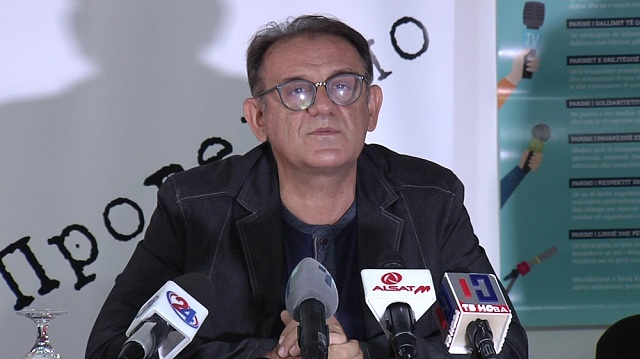
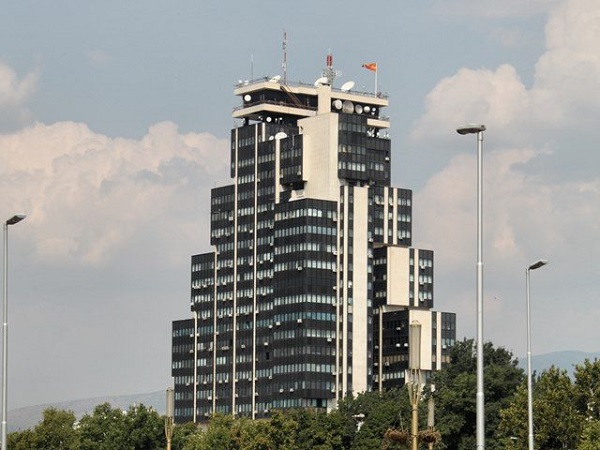
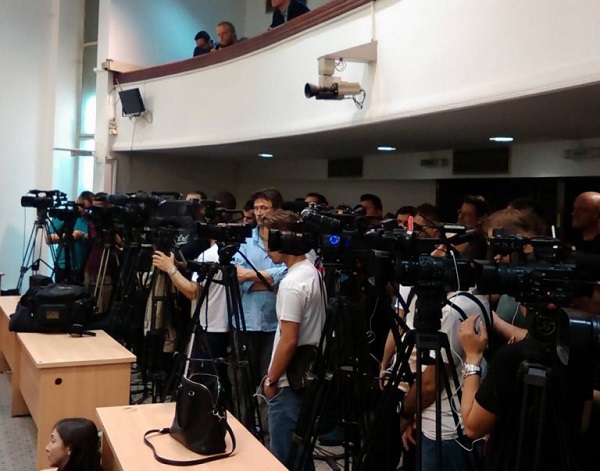

 – Сметаме дека таков тип на провизија на Закон за радиодифузија е погрешен, бидејќи на тој начин самата влада станува условно кажано уредник на програмската содржина во дел од медиумите. Во исто време им се билдаат огромни обврски и тие неможејќи да ги исполнат квотите стануваат сервилни или послушни на државата и на владата се со цел за да избегнат огромни казни. Затоа што во сегашниот закон казните не се во консолидација со препораките на Советот на Европа бидејќи тие не се пропорционални. Имаме казни од 10 илјади евра, 50, 100 илјади евра и замислете ако некој медиум не исполни квота за домашна продукција, без разлика дали е игра тоа на документарна серија ризикува да добие казна од 50 илјади евра – вели Секуловски.
– Сметаме дека таков тип на провизија на Закон за радиодифузија е погрешен, бидејќи на тој начин самата влада станува условно кажано уредник на програмската содржина во дел од медиумите. Во исто време им се билдаат огромни обврски и тие неможејќи да ги исполнат квотите стануваат сервилни или послушни на државата и на владата се со цел за да избегнат огромни казни. Затоа што во сегашниот закон казните не се во консолидација со препораките на Советот на Европа бидејќи тие не се пропорционални. Имаме казни од 10 илјади евра, 50, 100 илјади евра и замислете ако некој медиум не исполни квота за домашна продукција, без разлика дали е игра тоа на документарна серија ризикува да добие казна од 50 илјади евра – вели Секуловски.
 – Сметаме дека финансирањето на јавниот сервис од Буџетот не е добро решение, и кога веќе е усвоено, треба да се користи во ограничен временски период, додека не се консолидира состојбата во куќата и се создадат услови за прибирање на радиодифузната такса од страна на МРТ, а не со посредство на други државни институции, како што беше случај изминатиов период. Имаме впечаток дека оваа Влада сака да покаже резултати преку квалитативни промени во медиумскиот сектор и ги уважува предлозите на сите засегнати и релевантни чинители. Но како што поминува времето, станува јасно дека процесот на усвојување на новите законски решенија нема да се случи толку брзо како што се очекуваше – вели Петковска.
– Сметаме дека финансирањето на јавниот сервис од Буџетот не е добро решение, и кога веќе е усвоено, треба да се користи во ограничен временски период, додека не се консолидира состојбата во куќата и се создадат услови за прибирање на радиодифузната такса од страна на МРТ, а не со посредство на други државни институции, како што беше случај изминатиов период. Имаме впечаток дека оваа Влада сака да покаже резултати преку квалитативни промени во медиумскиот сектор и ги уважува предлозите на сите засегнати и релевантни чинители. Но како што поминува времето, станува јасно дека процесот на усвојување на новите законски решенија нема да се случи толку брзо како што се очекуваше – вели Петковска.